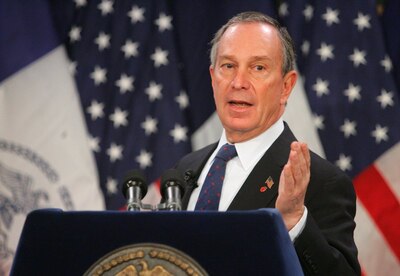Earlier this month, a leading public commission charged with studying school governance in anticipation of the June 2009 sunset of the law granting control of the city’s schools to the mayor released its final report, finding that the city should retain mayoral control but that “checks” on the mayor’s power should be instituted and that public engagement before major decisions are made should be required.

I’m a little late covering the report — from the Public Advocate’s Commission on School Governance — but it remains timely. Today, Mayor Bloomberg rails against revisions to mayoral control in a letter to the editor of the Times. And tomorrow, an independent parent group studying mayoral control is holding an event about the history of school governance in New York City. The assembly has said it will begin holding public hearings on mayoral control in January.
In a nearly yearlong process before making its recommendations, the 10-member commission solicited expert reports from a number of academics and heard testimony from more than 50 people, from Randi Weingarten to James Merriman of the New York Center for Charter School Excellence to Chancellor Klein himself. Ultimately, the commission identified a “general consensus” that mayoral control is superior to a decentralized system of school governance.
But mayoral control in its current form, without any real checks on the mayor’s authority, fails “to deliver on its promise of greater public accountability,” the report concludes. In the future, the commission recommended, the Panel for Educational Policy, currently considered a rubber stamp for the mayor’s policy proposals, should enjoy greater independence by having members with fixed terms, rather than simply serving at the will of the official who appointed them. In addition, the report recommends granting oversight of DOE data to the non-partisan Independent Budget Office, which currently performs an oversight function for other city agencies.
The report also examines the status of parent and community involvement in the schools under mayoral control, concluding that those groups are “frustrated with the lack of effective channels for expressing policy preference, registering concerns, and acquiring information.” To alleviate this frustration, the report recommends reconstituting offices in each community school district where parents can speak to DOE officials, allowing parents who serve on PTAs also to join community education councils, and to strengthen the role of School Leadership Teams, which the DOE diminished last year when it gave principals full control over setting their schools’ budgets.
Critics and backers of the current arrangement continue to weigh in on the report’s recommendations. Noting the report’s editing errors and brevity at just 30 double-spaced pages, Steve Koss at NYC Public School Parents called the commission’s recommendations “a timid program of tweaking around the edges that would leave governance of the public school system virtually unchanged.” (Given the resignation last fall of four original commission members who complained Gotbaum was too critical of the mayor, such a measured outcome may have been especially surprising to opponents of the mayor’s education reforms.)
Mayor Bloomberg, on the other hand, reacted as though the recommendations were a full-force assault on his authority, calling the report “just a political thing” when it was released. In a letter to the Times today, he rejects the report’s call for greater independence among PEP members as “a recipe for failure.” Bloomberg is right to be concerned — even though they do not call for a complete overhaul of the current governance structure, the recommendations, if implemented, would represent a significant shift in school governance in New York City. And because the chair of the State Assembly’s education committee, Cathy Nolan, asked Gotbaum to convene the public commission, its recommendations are likely to be taken quite seriously.
Learn more about New York’s school governance history at a panel sponsored by the Parent Commission on School Governance and featuring historian Diane Ravitch and others. Tomorrow, 7:30 p.m., Murry Bergtraum HS at 411 Pearl Street, Manhattan.
